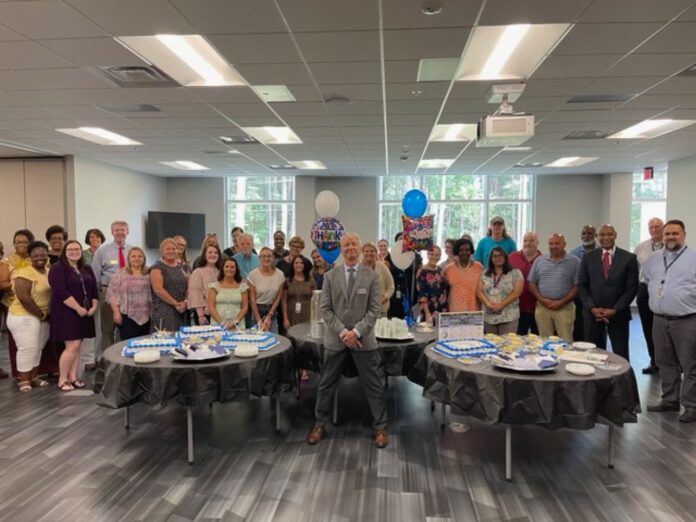Over 30 years ago, I was just an average high school kid in Chesapeake, Virginia, navigating the often confusing and sometimes overwhelming maze that was adolescence. Like most high school students, I found myself sitting across from my guidance counselor, a young, fresh-faced professional who, in hindsight, was probably still finding her own way in the world. Our meeting lasted no more than ten minutes, but the words she spoke have echoed in my mind for decades. She glanced at my grades, made a quick assessment, and told me something that, at the time, felt like a verdict: “You’re not smart enough for university. It would be best for you to attend our local community college.”
In that brief moment, my future was neatly packaged into a box labeled “limited potential.” I wasn’t devastated — I’d always been a practical kid, taking things as they came. But her words settled in my mind like a pebble in a shoe, something small but persistent that I couldn’t shake. It was a judgment made with a handful of data and a lack of understanding of who I really was or what I was capable of becoming. And while I may not have realized it then, that meeting was the beginning of a journey that would shape the rest of my life, fueling a drive that would push me to where I am today.
Fast forward some 35 years later, and here I am, about to begin my 23rd year of teaching as the lead instructor of the digital media program at Johnston Community College. Reflecting on that meeting with my counselor, I can’t help but feel a deep sense of irony. The very institution she thought was the limit of my potential has become the cornerstone of my professional life. It’s where I found my calling, where I’ve spent nearly half of my life helping students unlock their own potential, often when they, too, have been told that their abilities are limited.
Teaching at Johnston Community College has been the most fulfilling journey I could have ever imagined. When I look back at that moment with my guidance counselor, I don’t feel anger or resentment. Instead, I feel gratitude. Her words, though limiting, propelled me to prove that the sum of a person cannot be measured by grades or a ten-minute conversation. I knew then, as I know now, that every student is more than a number, more than a grade, more than a quick judgment made by someone who doesn’t truly know them.
This belief has been at the heart of my teaching philosophy for the past 22 years. When a student walks into my classroom, I don’t see their past academic performance or the labels that may have been attached to them. I see potential. I see a blank canvas ready to be filled with knowledge, skills, and the confidence to succeed in the ever-evolving world of digital media. My role isn’t to judge them but to guide them, to provide them with the tools they need to become professionals in their field, to watch them learn, grow, and eventually surpass even their own expectations.
There’s something incredibly special about teaching. It’s a profession that has become a hot-button issue in today’s political climate, with many outside the classroom eager to cast judgment on what we do. There are those who believe we are trying to indoctrinate students, pushing personal agendas instead of focusing on education. Others claim that we’re failing our students in one way or another. But those voices, as loud as they may be, miss the fundamental truth of what teaching is all about.
Teaching is about connection. It’s about meeting each student where they are, understanding their unique circumstances, and helping them navigate the path to success. It’s about creating an environment where students feel safe to explore, make mistakes, and grow. It’s about watching the lightbulb moments when a difficult concept suddenly clicks, and the quiet pride that comes from knowing you played a small part in their success.
At Johnston Community College, we’re more than just a collection of classrooms and programs — we’re a family. We support one another, celebrate each other’s successes, and come together in times of need. The bonds I’ve formed with my colleagues and students over the years are something I cherish deeply. Together, we’ve built a community where learning is not just about acquiring skills but about becoming better versions of ourselves.
As I prepare to start my 23rd year of teaching, I’m filled with a deep sense of gratitude. Gratitude for the students who have trusted me to guide them, for the colleagues who have supported me, and for the opportunity to do work that I love every single day. I know I’m far from the perfect instructor — I make mistakes, and I have room to grow, just like my students. But what I can promise is that I will continue to show up every day, ready to give my best, ready to learn alongside my students, and ready to make a difference in their lives.
Here’s to another 23 years of helping one student at a time, of making a difference in ways both big and small. Because at the end of the day, that’s what teaching is all about: helping people, guiding them, and believing in them, even when others might not. It’s a journey I wouldn’t trade for anything, and I look forward to every step along the way.
